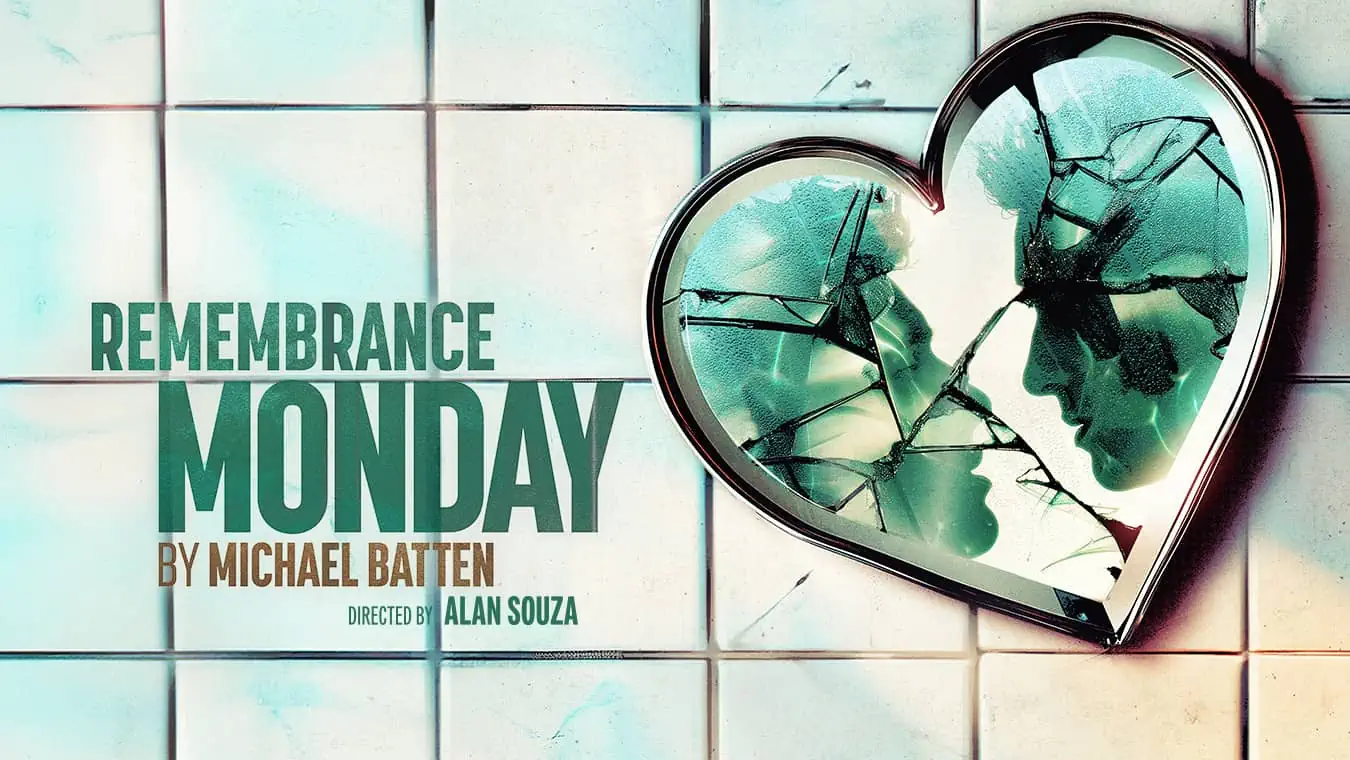Matthew Hodson is the Chief Executive of GMFA. He speaks to Patrick Cash about their work in raising awareness about HIV.
By Patrick Cash
Just to start off, tell us a bit about yourself.
Okay, so I’m Matthew Hodson, I’ve been Chief Executive of GMFA for a year now. I joined GMFA in 1999, initially I was a project worker for the research group there and the positive campaign group which was developing campaigns targeting gay men with HIV. I then became project manager, and then project manager for GMFA’s HIV prevention advertising campaigns, and then in about 2006 I think it was, I became Head of Programmes, which meant that I was responsible for all of GMFA’s health promotion outputs. And last year, following a loss of funding, we had to restructure the organisation and the Chief Executive that was, stood down and they asked me to take his role on. So I’ve been Chief Executive for almost a year now, a year next month.
And how did you get into doing that initial role? Was it always something that you wanted to work in, HIV and AIDS?
I was always interested in gay activism, since I was at university I kind of got involved with that, and when I was at university was when Section 28 was going through Parliament, so I went to university in 1986 and Section 28 went through in ’87, so yeah it was around that era. And I guess obviously I was coming to terms with my own sexuality at that point and I was coming to terms with it, I was suddenly faced with a very hostile government who was telling me that the choices I was making weren’t fit, weren’t adequate, that I was wrong and inherently diseased and inferior, which obviously made me very angry. So I got involved in that, I was one of the initial founders of OutRage! in London –
With Peter [Tatchell]?
Yes, with Peter.
And Wendyl, was Wendyl Harris one of the founding members?
Yes, I think she might have been, I mean it’s a long time ago. They called a meeting at the Lesbian & Gay Centre which was in Farringdon and at the time I was working for Gay Times Magazine so I knew about it and I thought I wanted to get involved with this, I think it’s very important that we stand up for our rights, so that’s how I got involved in that. So that whole activism thing, it was always kind of there within my life, I was doing other jobs as well, immediately prior to coming to work for GMFA I was actually working in the Museum of London and I curated an exhibition there called Pride and Prejudice which was about lesbian and gay life in the capital. The first lesbian and gay exhibition in any major museum in the UK.
When was that, in the 90s?
In 1999. So I did that and because that exhibition was very close to my heart, once I was doing that I thought ‘I don’t know if it’s going to get any better because I was really excited about that’, and then the job came up at GMFA and actually I thought ‘I’ll just do this for a bit and see how I feel’ and people have said to me that working in HIV prevention, it was very political and back-stabbing and all that, I was a little bit nervous about it, but actually I found the atmosphere at GMFA really empowering, very nurturing, and what was really very special to me was that whenever there was a big debate in the office, the answer was always ‘well, what’s best for gay men’s health?’ And I thought ‘this is the way it should be’, we should actually be making our decisions based on what’s best for gay men’s health and if we think that Option A is the best thing for gay men’s health, even if it isn’t the best thing for the organisation, that’s what we do. And I think we really try hard to maintain that ethos throughout the work ever since.
Just to give a bit of contextual history about GMFA briefly, it started off as Gay Men Fighting AIDS?
It was founded in London in 1992, it was a bunch of people, many of them working in HIV prevention already for other organisations, who were really concerned that HIV had been ‘de-gayed’ and obviously that kind of ‘de-gaying’ of HIV had happened to a certain extent for political reasons, as people thought it was still a very new environment that was politically hostile to all kinds of homosexuality, that if HIV was too closely associated with being gay then people wouldn’t care about it and actually the way to get people to care about it was to say ‘HIV affects everyone’. And a bunch of gay men said, ‘well, that’s nice but actually the vast majority of people who are infected in this country are gay men’ and you’re going to get a bigger bang for your buck if you actually target gay men specifically. And the way to target gay men is not to be namby-pamby and say things which used to drive people crazy like ‘we don’t have safer sex just because it’s safer’, with two men looking kind of coyly at each other. And for me back then as a kind of 18/19 year-old I was like ‘why the fuck do they have safer sex then?’, surely, surely, the reason you have safer sex is because it’s safer.
So they were trying to make it sexy then?
Yeah, they were trying to make it sexy, but it felt to me like they had absolutely no understanding of what I as a gay man felt valuable and exciting about sex. There are reasons to have safer sex but you know what, you don’t say ‘I want a bit less sensation so can I wear a condom, please?’ And I thought GMFA’s always had that very honest approach to sex and absolutely condoms remain central to safer sex prevention messages but you know you have to recognise they’re limited. Some people are never going to get on with them and you have to look for ‘what else can you do?’ and I think if we pretend that condoms are ‘great’ and ‘ooh, I just love wearing them’ then I think we’re kind of kidding ourselves.
Exactly, it produces artifice and mistrust.
And then people feel really disengaged from it – like, ‘well, it doesn’t relate to my life, I don’t believe what they’re saying.’ So I think for me that’s always been what GMFA’s been about, it’s about treating gay men as adults, capable of making decisions for themselves and it’s been about talking sex in a really honest way.
Keeping a realism?
Yeah, and using the same language that gay men would use conversationally with each other.
To talk a little bit about the cuts, we run a story about a year ago named ‘Cut To Your Heart’ and I think was in conversation with you then about it via email, how did the organisation recover from these cuts, was it through external funding or have the statutory cuts been reversed?
No, no, they haven’t been reversed. We were waiting to see what’s going to happen in terms of new pan-London HIV prevention contracts. They had said that these will be tendered this year, this calendar year, so obviously we’re poised to apply for those, whether or not we succeed remains to be seen. Currently we’re getting by on the support we have from the gay community, but we are running at a loss, we were lucky enough that we actually own the building we are in, so when we lost that huge chunk of our funding, we had to make a decision, well do we carry on? And if we had made the decision that you know what, no one wants to fund us, let’s just call it a day, we would still have had to sell our property and that would still have given us a considerable amount of money. We actually think that there are things that GMFA do better than anyone else and again that is relating to using gay men’s language, talking honestly about sex, not pretending, not being too prissy, being kind of blunt and to the point. So we thought, as we’ve got this money potentially that can keep us going for two years, let’s do that and let’s use this opportunity to show what we think we can do best. Because some of the things we thought we were good at, like advertising campaigns, we hadn’t been funded to do for six/seven years, so we’d had no money to do that, and we thought, if we’re going to be spending our own money then it’s better to spend it on what we want to do. Which is why we started doing advertising campaigns again and ‘Think Again’ being the first one of those. But we also think our website is really important, we know how valuable that is, it gets in the region of 600,000 visits each year from the UK but beyond that, we get people who access it from Africa, from China, from Russia. So it’s really reaching some people who have no access to that type of gay sex positive information, and I had a friend who was doing some work in South Africa the other day and he was talking to someone at a clinic and obviously you know that HIV prevalence is very high in South Africa, and they said that the GMFA website was the resource that they recommended to their gay male clients.
I think a gay sexual education resource online is very, very important and maybe that’s something that other organisations don’t have in the way of modern vitality.
I always say to the staff team that GMFA is your really well informed gay friend and that’s the tone in FS Magazine, on the website, in our advertising campaigns, we’re not pretending to be better, we’re not pretending to be different. We’re gay men and we’re talking to gay men and our work has developed because we’re volunteers who are gay men mainly. You know, so that’s it: it’s a very authentic gay male voice and I think that’s why it really resonates with people. I think there’s a real danger in health promotion and HIV prevention that it sounds like you’re delivering commands from on high, you’re coming down from Mount Sinai saying ‘it says here, thou shalt wear condoms the whole time!’ and it doesn’t really feel like it actually relates to people’s lives and the complications they may have.
A bit didactic…
Or like King Canute. It can be easy to say ‘oh you should do this’ and then when they don’t, say ‘oh, I told them to, it’s not my fault they did nothing about it.’
And speaking about the current advertising campaign, what is the thinking behind the ‘Think Again’ concept? Why did you think it was necessary?
We were really struck by some of the data that was coming out from Public Health England in 2012, which was the most recent date we had. There’s some new stuff about come out but I haven’t seen it yet. In 2012 there was 3,250 gay men diagnosed with HIV and a third of those were in their teens and twenties, which is young people, and anecdotally we just kept on hearing ‘oh young gay men aren’t engaged with HIV prevention, they don’t think it’s their issue any more’ and that kind of seemed to me to make sense, because when I spoke to young gay men, the things that they would be talking about would be the blood ban or marriage equality, both hugely important, and the blood ban was seen by younger people as a real infringement of their equality. And I think there was almost a perception that HIV was a bit like Section 28, it was something that belonged to the 80s or maybe the 90s, and it wasn’t an issue anymore, but really with over a third of the new diagnoses being men in their teens and twenties, no actually it is an issue. And there was one study which I read which suggested that unless there was a dramatic change, we were talking about 50% of college-age young gay men would be HIV positive before they were 50. Now obviously that mathematical model is speculative to a certain extent, but it just hit me in the face that I don’t think this is acceptable, I think we need to do something. My sense was that young gay men weren’t particularly engaged with HIV prevention messages, so we did some research, we did some online focus groups, we did some surveys with young gay men and were really trying to say ‘well, what is it? What media do you use? Where do you look for information?’ and a lot of what we got back kind of confirmed our fears, that there were a lot of young gay men who said ‘HIV is not an issue anymore or it’s something that won’t affect me, or it won’t happen to me because I’m not a slut or it’s something that won’t happen to me because I’m too young to get it, it’s something that happens to other people’. I think that’s true of everyone; almost everyone thinks it’s something that happens to other people. But at least with older generations they were kind of aware what the measures were they needed to take to avoid HIV infection, and perhaps because young gay men didn’t have that some exposure to those hard-hitting campaigns, and perhaps also because of the way that younger gay men engage with media and gay media specifically has changed, but they weren’t getting that same education, they didn’t have that same baseline of knowledge and because we were so struck by some of these inaccurate beliefs, we thought ‘it’s really important that people think again about HIV’ and that just became the theme of it, as we looked at the statements that we got from the focus groups and were like ‘that’s just not true’. And even in response to the campaign we had people saying ‘why are they talking about HIV as if it’s a gay disease, it can affect everyone’, and yes obviously it can affect everyone, it’s a virus, and it doesn’t know whether you’re straight or gay or whatever, but if you look at the proportion of people who’ve been infected in the UK, gay men make up the majority of them. You know, considering the proportion of the population in the UK that is gay male, it’s probably less than 3% I’d say, quite possibly less than that, if we’re making up 50% of new infections then we are being disproportionately affected by this and that needs to be addressed and the fact that some young gay men are thinking ‘oh this isn’t a gay disease’, well it’s not a gay disease because no disease has a sexuality, but if you look at who’s being affected, it’s gay men, and we need to get that message out there. The campaign’s done really well which is really exciting, it’s been viewed on Facebook over 3 million times now, and what’s even more exciting is almost 10% of the people who’ve seen it on Facebook have engaged with it, either by sharing it, commenting, liking it, or something like that so you know, 3 million, I don’t really know what that means, maybe people scrolling past it, but 10% of people are actually interacting with it I think is really quite exciting. It’s been uploaded to Tumblr over 2000 times etc.
It was shot in G-A-Y Bar, wasn’t it?
Two of them were, yes.
I think that makes it more potent, because you have the direct message and then the subliminal message that this is shot in an environment that young gay men know because this is where the young people go, cheap drinks… And does this ‘Think Again’ campaign relate to the idea that there’s a Second Silence currently about HIV/AIDS amongst young people, that they aren’t talking about it? There’s an apathy?
I’ve not heard the expression Second Silence before, but to me there’s a real sense that the work that’s happened to date hasn’t been enough. I would agree that people aren’t talking about it, and people aren’t engaging with it as much as I think they need to to prevent new infections. I think we have to recognize that some of that does come from the enormous improvements we see in the medical treatment of HIV. I’m going to do one of those ‘oh when I was young’ stories now, but when I was young, as a gay man on the scene in the late 80s, early 90s, your awareness of HIV was very different because you’d go to funerals, you’d see people in bars with very physical symptoms of HIV infection, hou would have friends or not necessarily friends but acquaintances and you’d realise that you hadn’t actually seen them for six months, and then six months later you’d hear that they’d died. You know, it was to a certain extent, they say it’s like living through a war because so many of our generation were killed and they were dying in numbers that you normally only experience in a war. It’s brilliant that that’s no longer the case, that we now have treatment that means that people with HIV have a normal life expectancy, that’s obviously fantastic and it needs to be applauded. And people need to talk about that as well, we need to recognise that the HIV that we saw in films like Philadelphia, which everyone still talks about, they talk about Philadelphia and the iceberg and the tombstones, that kind of doom-laden ‘you’re going to die’ thing and that’s no longer the case but along with that brilliant improvement there has been an increasing invisibility of HIV. People very rarely have visible symptoms now, so it’s very easy to believe you know no one with HIV, and there was some interesting date in the gay men’s sex survey which found that the proportion of people who believed that they knew someone with HIV, I think this was from 2008 so it was a while ago, but if I remember rightly, it was between 2004 and 2008 the proportion of people who thought that they knew someone with HIV actually went down, when of course in real terms the number of people living with HIV had gone up but because it was less visible it was much easier for people to say ‘oh, I don’t know anyone with HIV’ and I think particularly for younger people, I think there is still an almost knee-jerk belief that if someone has HIV you will know just by looking at them and of course it’s not true. It’s one of the reasons why we started doing one of the other projects which we’re doing at the moment, which is every month we have a positive pub crawl –
Oh yeah, and everyone wears red, yeah?
Well, I try and cajole them into wearing red! For next month, we’ve actually got T-shirts with ‘Poz Pub Crawl’ written on them, so they’ll be very, very in-your-face, so that’s great because they provide social support for people who are living with HIV. But it also…
Eradicates stigma?
Well, I think the way that we tackle stigma is by people living with HIV saying ‘I’m living with HIV, it may not be how I’m defined, but it is a part of me’. I always say it’s very like the struggles that we had around sexuality, if you look back to the 1970s, to say ‘I’m a gay man’ is an act of incredible bravery because you can lose your job, you can be rejected by your family, by lots of your friends, so it was real pioneers who said ‘I’m gay’ and were happy to let everyone know that they were gay. I think we’re kind of about there now in terms of being HIV positive, it’s an act of remarkable bravery to say ‘I’m living with HIV’, but the more people who do it, the more people who will realise, you know what, they’re not all freaks, they’re not all welfare-scroungers, they’re not all benefits-dependent, they’re living and working and getting by the same as anyone else.
I think there’s also an element of this kind of fear instigated by the idea of people having a lack of education about how HIV is passed on – could that be applicable to younger gay men?
I think within it there’s the logical response and the emotional response. I would hope that most gay men know that you can’t get it through sharing cups or sharing towels or shaking hands or any of those kinds of things, but I think there’s still the emotional response which fills you with dread and terror. Or not you, but fills some people with dread and terror, and you see something very similar played out when people are diagnosed. If someone receives a HIV Positive diagnosis now, the doctor says ‘we expect you to still have a normal life expectancy, you’re going to live until you retire as long as you take the drugs and all that’ but people suddenly think ‘I’m gonna die, I’m gonna die’. For me, I find that quite fascinating that despite the enormous strides forward we’ve made in terms treating HIV that I’m yet to hear someone say to me ‘I was diagnosed positive and it was alright’. Everyone I speak to who has been recently diagnosed is traumatised by the experience, which makes me really passionate that this is why we need to prevent people from becoming infected: it’s still important.











Dear Matthew Hodson!
First, I really don’t see how your “Despite HIV prevalence being higher in London than anywhere else, during the period we were doing campaigns in London, HIV negative men in London were less likely to have unprotected receptive sex with men who were positive or whose status they did not know, than anywhere else in the country” comment justify your work! So, in other words, what you are really saying is that HIV negative men in London were MORE likely to have unprotected insertive sex with men who were positive or whose status they did not know… Isn’t condom-less sex the easiest and most common way of contracting HIV regardless if you are the top or the bottom?
2012 has seen the highest level of new HIV infection within gay men in the British history and young men feel that HIV is not an issue anymore… are you really, honestly surprised?
Wasn’t it GMFA and THT that “educated” us that HIV is just a manageable condition? And now you are surprised men are not worried about HIV?
Secondly, you talk about “using the same language that gay men would use conversationally with each other” now that surprises me because majority of gay men refer to sex with condoms as SAFE SEX, not safer sex like you love to call it… whatever the right terminology is, safe or safer, condoms are in fact the safest form of protection for penetrative sex out there!
Now, lets take a look how combating the spread of HIV has been managed in the last decade or so….
mentioning safe or safer sex… how about BAREBACK? sexed up word for what in fact is a reckless, irresponsible and unprotected sex… (nothing to do with riding a horse without a saddle of course!). just making condomless sex more appealing. shame those who choose condoms at all times are constantly reminded by you they are not safe!
campaigns… lets stop running condom use campaigns and replace them with testing ones as means of combating the spread of HIV… (naturally lets not mention the 6 weeks window period). result? Many of those who contracted HV was within that period! but we need to spend more money and do research to find that out… right!
testing apart, what really was not only wrong on all levels, but is completely untrue, was your “Start your treatment on time and you can live up to 100” campaign.. not only you run this campaign well before any test even been done on long term effects of HIV “treatment” but of course you “forgot” to mention the development of drug resistance, kidney failure, high cholesterol levels, mental health, heart attack… liver damage due the toxicity of HIV treatment… people die prematurely directly as a result of their HIV. their deaths are just not recorded as HIV related…
speaking of treatment… actually there is no such a thing as a HIV treatment… the HIV drugs don’t treat HIV! They only suppress the virus!
next step lets flood the gay scene with condomless porn and live BB sex shows in clubs… in the name of “fantasies” of course… private profiles of gay men advertising for such a behaviour (and current high rate of new HIV infections) clearly proves those are no fantasies… but lets empower them anyway because this is their choice, their right… and combating the spread of HIV is purely a one way street and falls on HIV negative men only. And while they deny themselves sexual fantasies, bother with condoms and face insults from “poz BBers”, if you are HIV positive and choose the path of irresponsibilities, let’s open a sex club like CUM UNION promoting reckless behaviour in the name of PRO CHOICE! .Those kind of choices may be valid in the USA where no taxpayer picks up the bill for their recklessness, it is not the case here, in the UK! Especially in times when those with incurable cancers get rejected life prolonging treatments due to their costs!
…and on that subject how conveniently you forgot to mention the cost of HIV+ man to the taxpayer! “they’re not all welfare-scroungers, they’re not all benefits-dependent” you say. Anyone that costs more to be kept alive than he/she can actually pay back in taxes is a scrounger and drainer! Fact!
Support…
If you choose the road of recklessness and contract HIV or Hep C you get all support out there while of course lets forget about negative men who may be struggling with safe sex due to the pressure of the BB gay scene. Aren’t they the ones you should concentrate on NOT getting HIV in the first place? Encouraging them to be safe?
You talk about “combating” the spread of HIV yet all you have really achieved is a BB culture with alarming rates of new HIV infections, year in, year out!
It’s all good to talk about “informed choices”and “education”, but that mean nothing if you are telling us half the story! It’s just like food producers will label their product as healthy, low fat, yet hiding the high sugar/salt amounts! If you were a private company appointed by the government to combat the spread of HIV you’d be out of business long time ago! Yet, here you are, making HIV as if it was a free, none life threatening disease, (sorry, a condition) with no side effects…
So finally, Dear Matthew Hodson.. perhaps you would like to tell us here, why is it exactly worth it to stay HIV negative? I’d like to hear from you a one good valid reason why we should bother with using condoms, (and denying ourself sexual fantasies) for the sake of not contracting what you call a manageable condition!
Hi Camp Matt,
Yes, it’s embarrassing to read a verbatim transcript of an interview that you gave, especially with all the long, unstructured sentences (which feel perfectly natural in conversation but are unwieldy in print).
Just to clarify: GMFA were never funded to deliver national HIV prevention campaigns through CHAPS – that was THT. We did get money for mass media from LGMHPP (2001 – 08), producing 3 campaigns for gay Londoners per year during that period but did not get pan-London funding for campaigns after that – that contract went to THT.
Despite HIV prevalence being higher in London than anywhere else (as well as use of recreational drugs and numbers of sexual partners) during the period we were doing campaigns in London, HIV negative men in London were less likely to have unprotected receptive sex with men who were positive or whose status they did not know, than anywhere else in the country. Unfortunately, I don’t believe that this has continued to be the case. Men in London also recorded the highest levels of awareness around HIV and how it is transmitted. GMFA’s campaigns in this period usually out-performed other HIV prevention campaigns in both local and national recognition and engagement.
I can’t attribute these differences entirely to the impact of mass media campaigns – but population level differences are more likely to be as a result of population level interventions. I do believe though that a joined up approach, promoting and delivering testing, ensuring that gay men are informed about HIV and how it is transmitted, that we have the confidence to negotiate safer sex with our partners and that we are encouraged to value our own health, is necessary for us to reduce new infections.
Best wishes to you and to anyone who made it to the end of the interview.
Matthew
Hi Camp Matt, thanks for taking the time to leave your comments. All of these ‘In Conversation With’ pieces are stream of consciousness conversations, because they are essentially the word-for-word transcripts of my meetings with the interviewees. The idea is to build up an archive of material that may be of interest to readers, either now or in the future, as an additional or more in-depth examination of particular topics through the words of key figures working in these fields.
For the feature specifically written for the current issue of QX that cites this interview (amongst others), please check the flash version of the magazine on the top left of this page and go to pp.2-3, or pick up a copy of the magazine tomorrow when it is out in print. However, I’m afraid you may be sorely disappointed that you won’t find anything more accusatory of GMFA in those words.
As far as I see my work as a journalist: it is to improve and better the wellbeing of my immediate gay male community, using the tool I have of this publication, by raising awareness and the spread of educative information without straying into the didactic. When talking to Matthew Hodson and writing this feature on ‘The Second Silence’, what I had in mind was the idea of moving forward cohesively by beginning a discussion on HIV/AIDS within our community that ideally would ultimately benefit all of its members. If I imagined that either Matthew Hodson or GMFA did not share this ethos, I would have brought it up. But there is no benefit in antagonism for antagonism’s sake, nor the unthinking and all-too-easy invocation of judgement and shame upon one another in our community, when we are in a wider fight of gay men’s health and wellbeing that is, to me, something that is actually important.
Meant to type: *sexual health of gay men.
Well done to Matthew, all GMFA, Naz, 56 Dean Street, and other projects concerned with the sexual of men who love men. Orgasms are great, especially healthy ones. Keep up the great work.
Why oh why doesn’t someone sub-edit this interview. It’s another stream of consciousness conversation, not good, readable journalism – nor is it particularly combative.
There is no questioning of anything Hodgson says, nor anything which challenges on them about having taken £££s of taxpayers money over the years before they were “cut” and they achieved very little.
GMFA were, if I remember rightly, funded for advertising and media through CHAPS (national funding) and London’s Gay Mens HIV Programme and Pan London HIV Programme (London funding) for the years 1999-2013. But in those years HIV rates in gay men SHOT UP to the point where they had the record Hodgson mentions above. So why do they still expect the taxpayer to fund them. Be a charity; fundraise!
Oh, and QX, it might be worth becoming proper journalists and learning some tough, background questions with which to challenge your interviewees rather than just colluding with their agenda. Even Pink News shows more acumen than just to parrot print quotes of politicians and people with power, money and influence. Shame on you.